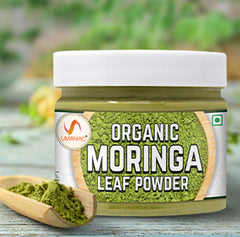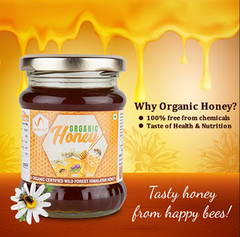In recent years, studies claim that there has been a noticeable shift towards sustainability and the demand for organic and natural food. The movement in consumer preference is found particularly among millennials and Gen Z. This generational group, known for its mindful consumption habits, is increasingly preferring organic products over conventional ones.
Just like their millennial forebears, Gen Z is well aware of the challenges posed by the global economy and the need to address issues like social justice, climate change, and geopolitical unrest. The Ketchum report found that 76% of Gen Z think sustainability is important for food purchases, 51% care about the environment and climate change issues, and 72% think the food system is broken. These influences have shaped them to be highly aware of societal issues and environmental concerns. This increased awareness of global issues has had a significant impact on this demographic, with 63% stating that they feel too much pressure to change the world through their actions.
The organic food industry has been steadily growing, with sales reaching $56.4 billion in 2020, according to the Organic Trade Association's 2021 Organic Industry Survey.
With the outbreak of the COVID-19 pandemic, the Deloitte Global Millennial Survey 2020 reveals that young people worldwide have expressed a desire for change and have made daily routine modifications to benefit the environment, such as increasing their consumption of organic and locally produced goods.
So, what is driving this trend? Let's delve into the highlights of why these demographics are increasingly opting for organic choices:
Health Consciousness: Millennials and Generation Z are more health-conscious than other generations. They emphasize their health and actively seek out foods thought to be healthier options. Organic food, which is free of synthetic pesticides, hormones, and genetically modified organisms (GMOs), fits well with this philosophy. These generations are willing to pay more for things they believe will improve their general health and vigour.

Environmental Concerns: For millennials and Generation Z, environmental and sustainability concerns are of utmost importance. They are intensely conscious of the environmental damage that conventional farming practices can do, such as soil deterioration, water pollution, and biodiversity loss. They believe that buying organic food supports more environmentally friendly and sustainable production methods.

Animal Welfare: Concerns about animal welfare are another aspect influencing the trend toward organic food. These generations are becoming more conscious of the ethical concerns surrounding industrial farming, such as overpopulation, antibiotic use, and harsh animal abuse. Organic farming practices often prioritize animal welfare by providing access to pasture for grazing and forbidding the use of antibiotics and growth hormones.

Social media influence: Social media has a tremendous impact on consumption patterns, particularly among younger generations. Influencers and wellness advocates frequently promote organic food as part of a healthy lifestyle, raising awareness and demand among their followers. Millennials and Generation Z are more likely to find new products and businesses via social media platforms such as Instagram, TikTok, and YouTube, fueling the organic food movement.
Accessibility and Availability: As the demand for organic food increases, it becomes more accessible and readily available. Major food brands, shops, and grocery chains are extending their organic options to meet the demands of millennials and Generation Z. Furthermore, the rise of online shopping has made it easier than ever for people to identify and buy organic items, regardless of their location.

Transparency and Trust: Transparency and authenticity are extremely important to this generation. They want to know where their food comes from, how it is manufactured, and what ingredients are used. Organic certification provides openness that conventional products may lack. The organic label ensures that high production requirements have been met, such as the use of organic food products and sustainable farming practices.
The data and facts clearly state that this generation is driving the shift towards responsible consumption of organic products. Global consumer behaviour is being influenced by their choices for foods that are healthier, more ecologically friendly, and ethically produced. These trends are transforming the food industry and are likely to grow more in the coming years.











